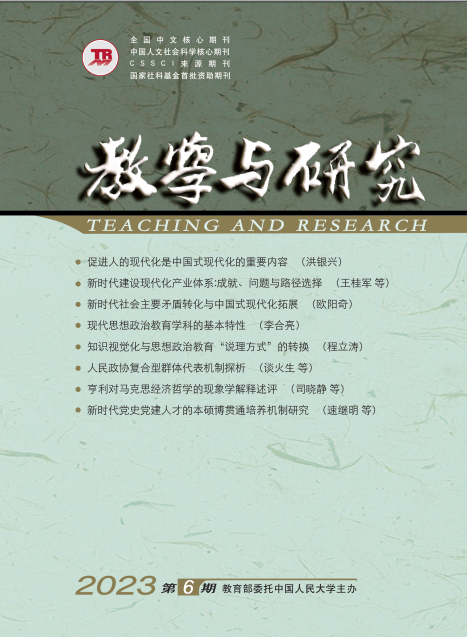Contradictions are the driving force of social development, and modernization is a transformative practice carried out in a specific social form. The intrinsic correlation between the principal social contradictions and modernization reflects the objective role of the laws of human social development, socialist construction, and the governance of the Communist Party of China (CPC). Socialist modernization promotes the progress of human society and the free and comprehensive development of human beings in solving the principal contradictions of society. The transformation of the principal contradictions of society in the new era reflected in the peoples evergrowing needs for a better life, the unbalanced and inadequate development and the primary stage of socialism poses new challenges and requirements for the modernization of China. In resolving the principal social contradictions, the CPC has led the people to clarify the goals, paths, principles and patterns of development, further highlighting the characteristics of joint planning, coordination and independence, peoplecentered philosophy, and winwin cooperation of socialist modernization, promoting the successful expansion of Chinesestyle modernization both vertically and horizontally, and increasingly presenting the features of the new form of human civilization. Chinesestyle modernization, with innovative development of production modes at its core, has typicality in resolving principal social contradictions. Its scientific path of pursuing the balanced and full development of productive forces and the synergistic optimization of production relations, as well as the Chinese solution of constructing a better life for people and a better world for human beings, explains the inner essence of Chinesestyle modernization as the modernization of human beings, highlights the incomparable institutional advantages of socialism with Chinese characteristics in the expansion of modernization that shoulders the world historical mission of the scientific socialist movement in the 21st century.



